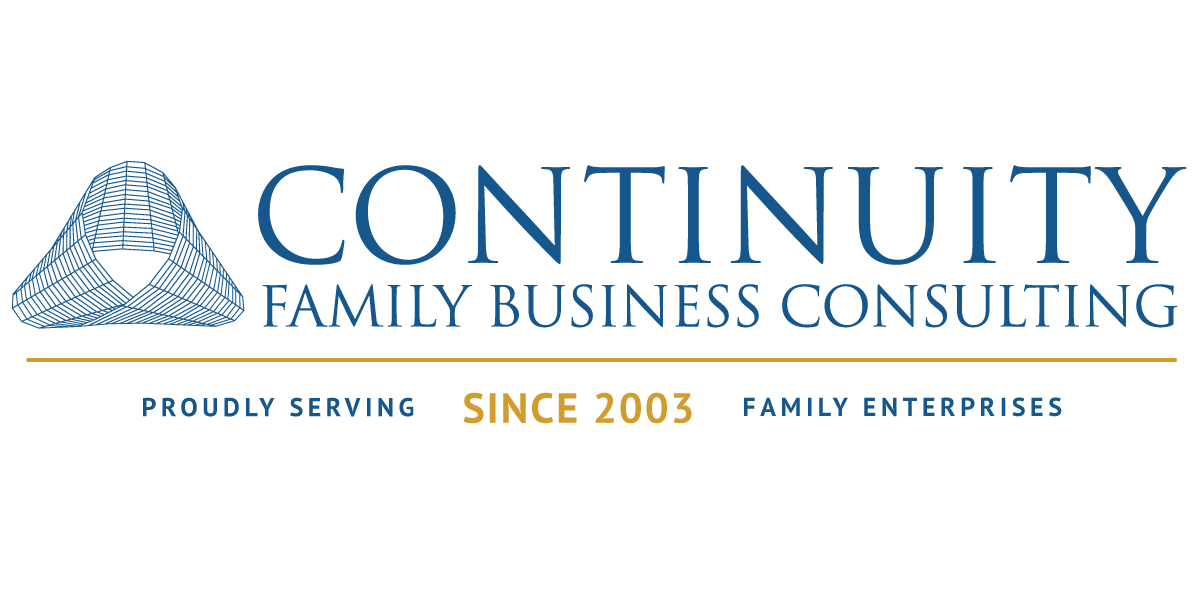“We don’t get harmony when everybody sings the same note. Only notes that are different can harmonize. The same is true with people.” Steve Goodier
All enterprising families experience conflict, and how to handle conflict is a top concern for family businesses. Conflict is NORMAL. It is a natural characteristic of the family, evolving when people’s roles change and grow, overlap, clash, or are misunderstood. Staying strong as a family and a family business requires flexibility and constant renegotiation of roles, as well as an acceptance that dealing with conflict is just business as usual.
Learning how to effectively manage conflict provides a clear and powerful competitive advantage for the family enterprise. The secret of doing that effectively: Families must think systemically and integrate ways of managing conflict into a family business’ structure rather than trying to resolve isolated disputes.
The Upside of Conflict (Really: There can be an Upside)
The focus of our work is to understand and manage systemic conflict – not to eliminate it or permanently resolve individual disputes. In fact, well-managed conflict can actually be an asset to a company. Conflict plays a valuable role in human endeavor and collaboration. Consider this:
- It is only through being challenged by conflict that we learn, grow, and advance as people, families, companies and societies;
- Well-managed conflict can lead to new approaches, innovative strategies and resilience;
- Integrating conflict management can lead to patterns of shared power, mutual respect, and proactive conversation and planning;
- When families learn to manage conflict in constructive ways, they can ensure the productivity and resilience of their firms for years to come.
The Downside of Avoiding Conflict
Avoiding or ignoring conflict over time can seriously impact a company’s ability to function. For example:
- Poorly managed conflict can lead to stagnant relationships or organizations and create rigidity that makes them vulnerable to stress or change;
- It’s common for a slow erosion of family relationships, the development of grudges, feuds, wars and counter-productive behaviors to occur when conflict is allowed to fester;
- Organizations can miss valuable opportunities when they are distracted or paralyzed by conflict;
- Ignoring or mismanaging conflict can waste valuable resources such as time, money, human capital and reputation.
Managing Systemic Conflict is NOT Dispute Resolution
In a family enterprise, each dispute generally is part of a larger conflict system, connected to and influenced by other disputes, personal relationships, temperamental styles and traditions. Dispute resolution tries to identify a specific problem and then come up with a solution, treating the “fight” as an isolated incident and failing to take into account the entire family system. In comparison, the use of a family-systems-based approach can allow one to approach conflict from a different perspective, often much less blaming and loaded for those in dispute.These make up a family’s identity and personality; families are often attached to many of these characteristics.
The bottom line: Dispute resolution and mediation are often ineffective approaches for managing systemic conflict over time in family business systems.
Systems thinking is the process of thinking not simply about what is observed in isolation (“the fight”), but about how that might be linked to other factors within a whole, integrated system. Nothing happens in a vacuum; all actions, goals, personalities and traditions can have ripple effects within the system. What a group may think of as “the problem” may actually be the result of an array of issues that all came together over time to form a perfect storm. The parties who are actually fighting may be expressing different sides of a conflict that involves many other family members.
Diagnosing Systemic Conflict: Treat the “Disease,” Not Just the Symptom
To better understand why a systems approach to conflict management is so crucial, imagine a doctor treating a patient’s cough without considering that person’s medical history, changes in lifestyle or health, or other ailments. If a doctor did this, they might not understand the contributing factors to the condition and miss the opportunity to diagnose a more serious problem that, if caught early, could be treated and managed over the long term.
By considering the patient’s past and ongoing lifestyle, behavior and relationships, the doctor could gain valuable insight about whether the patient is able or likely to follow the prescribed protocol. Does the patient have the support he needs to follow doctor’s orders? Is the patient surrounded by a peer group that encourages continued behavior that caused the illness or injury? This strategy of comprehensive assessment is similar to the systems methodology we advocate using with families in conflict.
Families and their advisors benefit when they understand that conflict is normal—and often beneficial— and that honoring conflict should be integrated into the very structure of the enterprise. Families thrive when given ways to think beyond a current dispute; to understand the larger system behind the “fight.”
Sound, ongoing conflict management offers a method to assess the important continuing relationships that exist in the family business system and how those relationships impact the causes of conflict and potential solutions to conflict. Embracing and managing systemic conflict empowers families to develop their own harmony out of dissonance, developing solutions that are robust, reliable, and transformational.
Learn more about Continuity’s Conflict Management Methodology for Family Business.
Consult an Essential Resource: Deconstructing Conflict: Understanding Family Business, Shared Wealth, and Power.
About Us
Continuity Family Business Consulting is a leading advisory firm for enterprising families. Using a full suite of service capabilities, we help families prevent and manage the single greatest threat to family and business continuity: conflict. It is through this lens that we advise our clients and build customized strategies for succession planning, corporate governance, family governance, and more. We help families improve decision making, maximize potential and achieve continuity. To inquire, visit https://continuityfbc.com/contact-us or call (617) 500-3110.


